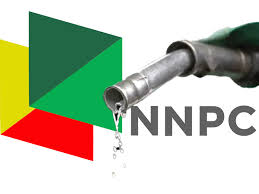Petrol pump prices rose sharply across the country on Monday, with filling stations operated by the Nigerian National Petroleum Company Limited (NNPCL) adjusting their rates to N945 per litre in the Federal Capital Territory and N915 in Lagos. This marks a fresh increase of N35 in Abuja and N45 in Lagos from previous prices of N910 and N870, respectively.
Independent marketers were not left out of the upward shift. In Abuja, they increased pump prices by as much as N60—from N895 to N955 per litre. In Lagos and parts of the South-West such as Ogun State, pump prices ranged between N915 and N950 per litre depending on the location and operator. Dangote refinery partners like MRS, Heyden, and AP sold petrol for N925 in Lagos and N935 in Ogun State.
The latest hike comes barely days after Dangote Petroleum Refinery reviewed its ex-depot price upwards from N825 to N880 per litre. This adjustment by Nigeria’s largest refinery triggered a ripple effect across the downstream oil market, prompting both private and government-affiliated retail outlets to follow suit.
At various NNPCL-owned outlets in Abuja, new prices were visibly displayed. For example, the mega station at Federal Housing, Kubwa, sold at N945 per litre, while other stations along Obasanjo Way and Airport Road, such as AYM Shafa, AA Rano, and NIPCO, adjusted their prices to N955 per litre. Strategic partners of Dangote refinery like Optima and MRS offered slightly lower prices at N945 per litre.
In Lagos, filling stations in areas like Igando and along the Badagry Expressway showed pump prices of N915 per litre. MRS, a major Dangote distributor, hiked its prices to N925, up from N875. TotalEnergies adjusted to N910, while local independent dealers like Oluwafemi Arowolo Petroleum in Iba Lagos sold at N920 per litre.
Fuel station operators say the adjustments were necessary due to the volatility in depot prices. Many noted that their current fuel stock was bought at lower depot rates, but they had to increase pump prices pre-emptively due to uncertainty over replacement costs.
Depot sources confirmed that top supply hubs such as NIPCO, Wosbab, and Pinnacle have raised ex-depot prices to between N920 and N925 per litre as of June 23. Dangote depot closed sales at N905 per litre. Notably, NIPCO Lagos recorded the steepest jump—N25 per litre—marking a 2.72 per cent rise. Other depots like Fynefield, TSL, and Ever were reportedly selling as high as N940 per litre, though some depots such as Rainoil and First Fortune held steady at N920 per litre.
The persistent upward adjustments in petrol prices are expected to heighten inflationary pressures, especially for households and small businesses. With no subsidy cushion in the current deregulated market, Nigerians are left to absorb the full impact of every price fluctuation.
Petrol consumers are increasingly worried. Transporters have started reviewing fares upward in response to the new prices. Traders and market women say that logistics costs are already rising, which could soon reflect in food prices.
The broader energy crisis is also being influenced by international factors. Rising geopolitical tensions between the United States and Iran have shaken the global oil market. Over the weekend, US and Israeli forces reportedly launched airstrikes on Iranian nuclear sites. In retaliation, Iran fired missiles at US bases in Qatar and Iraq, including the Al Udeid airbase in Doha. Qatar confirmed the strike, describing it as a serious violation of international norms.
Following the military exchanges, oil prices initially surged to their highest levels since January. However, by Monday, Brent crude futures unexpectedly dropped to $71.66 per barrel, while West Texas Intermediate (WTI) fell to $68.32 per barrel—likely due to market uncertainty and speculative corrections.
PetroleumPrice.ng’s Chief Executive Officer, Olatide Jeremiah, warned that speculative pricing is worsening the situation locally. He said, “The surge in depot fuel prices is abnormal, and it has to be controlled. The percentage increase in crude oil price lately is just 3 per cent, but importers and depot owners have hiked the price by over 10 per cent. Sooner, these prices will be passed down to the pump.”
With depot prices rising faster than international oil benchmarks, marketers are accused of engaging in profiteering. The government has yet to issue a formal response, but industry stakeholders are calling for tighter oversight to prevent artificial price hikes.
As the global oil supply chain remains volatile and local players continue to adjust their pricing models, Nigerians may face another round of economic hardship—especially if the ongoing US-Iran tensions persist or escalate.
